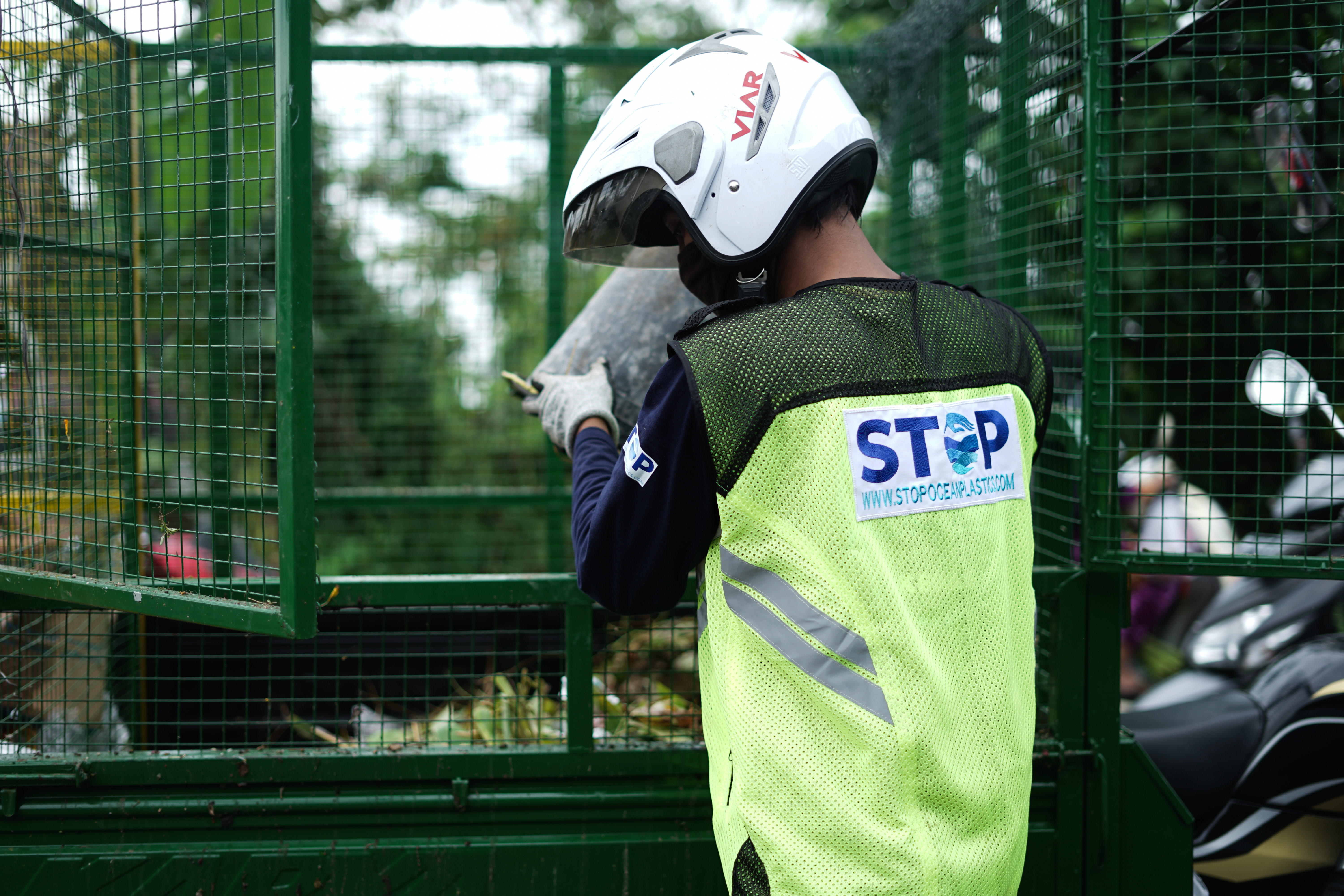From 2017 to the end of 2020, the programme has brought waste management services to more than 133,000 people, built material recovery facilities that collectively process 150 tonnes of waste per day, and contributed to keeping more than 1,100 tonnes plastic out of nature’s ecosystems.
Co-founded by Borealis and SYSTEMIQ in 2017, Project STOP works with city governments to create effective circular waste management systems in high-need areas of Southeast Asia. It provides cities with technical expertise to create circular waste management systems that achieve zero leakage of waste, increase recycling, are economically sustainable, create new jobs, and reduce the harmful impact of mismanaged waste on public health, tourism and fisheries. Today, Project STOP operates in three city partnerships: in the coastal cities of Muncar and Pasuruan in East Java, and in Jembrana, on Bali’s northwest coast.
Fighting pollution and the pandemic
By the end of 2020, Project STOP had:
- Brought waste collection to more than 133,500 people, most for the first time.
- Stopped 8,123 tonnes of waste (1,118 tonnes of plastic) from polluting the environment.
- Created stable jobs for 168 waste-workers, which will grow to more than 250 by the end of the programme.
- Completed construction of five material recovery facilities – one 50 tonnes/day facility in Jembrana, Bali, two 30 tonnes/day facilities in Pasuruan, East Java and two 20 tonnes/day facilities in Muncar, East Java.
- Piloted multiple governance models to support more stable, professional waste management systems.
- Developed an extensive curriculum to train government and others to set up and operate waste systems
Like many other organisations coping with the COVID-19 pandemic, Project STOP faced challenges ensuring continuous waste management services for the communities where it operates. Waste management services are essential for community health, as well as keeping plastic out of the environment. Since the start of the pandemic in Indonesia, Project STOP conducts rapid testing, hygiene and COVID-19 training, installed and maintains additional hand-washing stations, and takes worker temperatures daily. Workers continue to wear protective equipment, including gloves and face masks, and practice social distancing. Collection vehicles and equipment are fully sanitised daily, with common surfaces cleaned multiple times per day.
“Truly a team effort”
“Despite the challenges caused by COVID-19, 2020 was another highly successful year for Project STOP,” says Borealis CEO Alfred Stern. “We are grateful to all of the project’s frontline workers for keeping these essential services going during the pandemic. The initiative continues to deliver the benefits we expected and its achievements to date show how well the organisation is set up, the dedication of its team and the significance of these services to the people who receive them.”
Joi Danielson, a SYSTEMIQ Partner and its Asia Programme Director, is in no doubt about the driving force behind the progress. “The success achieved is a result of so many inspiring, committed people from local and national governments, community groups, and our strategic partners productively working together to build circular, zero-leakage waste systems. It’s truly a team effort,” she says. “We are looking forward to supporting an increasing number of cities to build modern waste systems and stopping thousands more tonnes of environmental pollution in the years ahead.”
With an annual consumption of more than 6 million metric tonnes of plastic, it is estimated that Indonesia’s ocean leakage is roughly 1 million tonnes a year, the second largest in the world. In 2017, the Indonesian government committed itself to reducing the country’s ocean plastic flows by 70% by 2025. To contribute to this national commitment, Project STOP plans to further scale its activities across a wider region of Indonesia.
The project partners
In addition to Borealis and SYSTEMIQ, Project STOP is grateful to its strategic partners who also provide technical expertise. They include the Norwegian Ministry of Foreign Affairs, NOVA Chemicals, Nestlé, the Alliance to End Plastic Waste, Borouge and Siegwerk. The initiative’s supporting and technical partners are Veolia, Sustainable Waste Indonesia, Schwarz and HP.
This work is made possible by and led in full support with national and local government agencies, including the Ministry of Environment and Forestry, the Coordinating Ministry for Maritime Affairs, the Ministry of National Development Planning/National Development Planning Agency, the Ministry of Public Works and Public Housing, the Banyuwangi Government, the Pasuruan Government and the Jembrana Government, including the environmental agencies of Muncar, Pasuruan and Jembrana.

